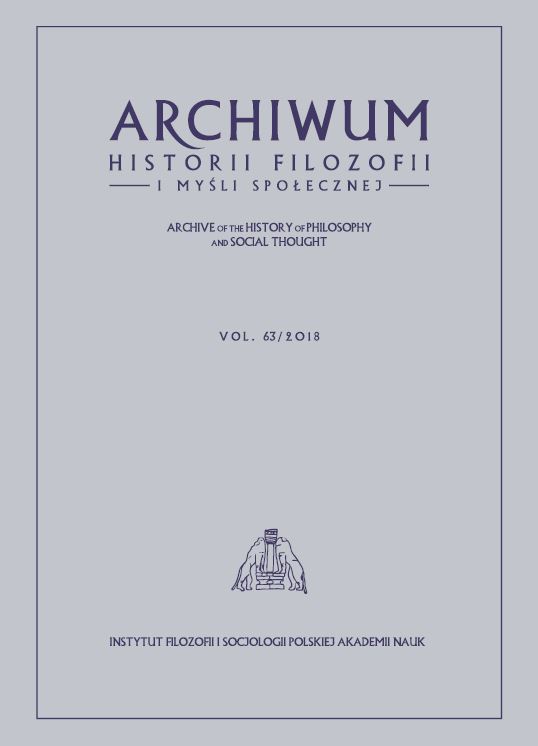Dowodzenie / wyjaśnianie naukowe według Arystotelesa
Aristotle on Scientific Demonstration / Explanation
Author(s): Marian Andrzej WesołySubject(s): History of Philosophy, Philosophical Traditions
Published by: Instytut Filozofii i Socjologii Polskiej Akademii Nauk
Keywords: Aristotle’s scientific cognition; demonstration / explanation; four causes: formal; material; efficient; final
Summary/Abstract: Recognizing the problem of scientific explanation in Aristotle began only in the second half of the twentieth century with the discussion of the so-called deductivenomological model of explanation. Aristotle’s approach to explanation was interpreted mainly in connection with his theory of four “causes” (aitiai). We try to indicate a somewhat wider theoretical context of explanation in the light of Aristotle’s theory of demonstration (apodeixis) or epistemic syllogism. What has traditionally been labelled as Aristotle’s theory of demonstration would be more intelligible if conceived as his theory of explanation. For Aristotle scientific cognition consists in the causal explanation in a specific domain of knowledge. In his view demonstration, explanation and causation cannot be understood separately. His theory of the four causes (formal, material, efficient, final) was a search for answers to the why-question, i.e., a request for an explanation. For this reason investigating “causes” is constructing demonstration / explanation.
Journal: Archiwum Historii Filozofii i Myśli Społecznej
- Issue Year: 63/2018
- Issue No: 63
- Page Range: 255-282
- Page Count: 28
- Language: Polish

